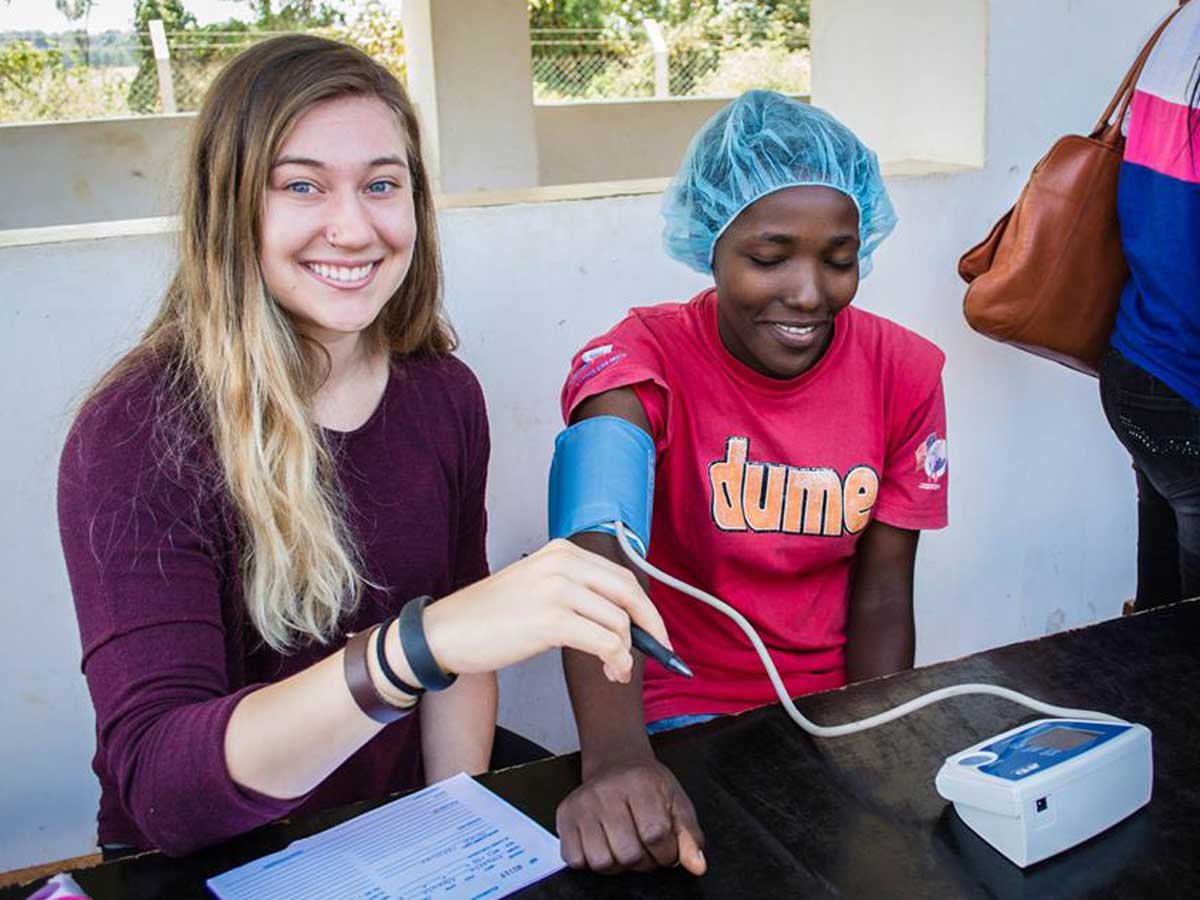Students explore innovative medical solutions in Tanzania

Photo: Biology students Emily Nicholishen (pictured) and Tara Upshaw worked in a medical caravan in Tanzania.
In rural areas of the Kilimanjaro region, where residents lack regular access to medical treatment, cardiovascular disease is the leading cause of death for women. “A lot of people still think it’s HIV and infectious diseases, but that’s not true,” said biology (opens in new window) student Tara Upshaw. “One reason is preferential care towards males—so hypertension, while it’s a problem for all people, it’s also a women’s issue. In most of these communities, there’s a genetic predisposition towards hypertension, which results in strokes and heart attacks.”
From September 24 to October 8, Upshaw and fellow biology student Emily Nicholishen travelled to volunteer at the Pamoja Tuneweza Women’s Centre in Moshi, Tanzania. While there, they spent five days working with the centre’s biannual medical caravan, which travels to rural areas to treat underserved people.
“We would travel to a village outside of the city and set up a clinic there for all the people from the village to come,” said Nicholishen. “Then they would see Tara and myself to get their vitals checked—heart rate, blood pressure, weight—and then be relayed inside the clinic to a combination of one of the med students, a clinical officer, and one of the translators.”
While visiting the village of Machame, they met a rural woman who made untested herbal remedies to combat cardiovascular disease. “We see such high blood pressure in the villages because people either don’t realize they need to continue taking their hypertension medication, or they can’t afford it,” said Nicholishen. “We think it’s beneficial to investigate if her herbal remedies work. The plants are endemic to the region, and can be grown for a very nominal fee, or independently by the people themselves. If it works, it could also potentially augment the effects of those medications.”
They received financial support for the initiative from several Ryerson departments, as well as their own fundraising. Currently, Upshaw and Nicholishen would like to turn their experience into the basis for a long-term student program, in collaboration with the Pamoja Tuneweza Women’s Centre. They hope to build an annual program in which Canadian students can investigate practical solutions to cardiovascular issues in Tanzania (such as herbal remedies), empowering the locals to implement these systems. In conjunction, they hope to develop a program that can teach social/cultural literacy for Canadian students travelling to Tanzania in the future.
“We both feel that science students really need that social literacy in addition to science literacy in order to be effective decision-makers and leaders,” said Upshaw. “We would really like to see the establishment of Swahili lessons several months before they depart, and background information about the cultural experiences they’re going to have.”
They also praise the Pamoja Tuneweza Women’s Centre as an ethical and innovative NGO. “It enables Tanzanians,” said Upshaw. “The decisions made on a daily basis are made by Tanzanians.”